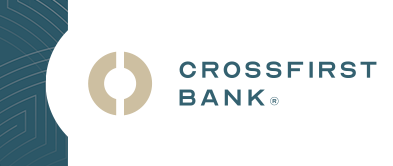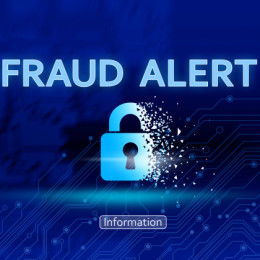
October is Cybersecurity Awareness Month and CrossFirst Bank is using this opportunity to remind you of a few tips to support your online safety and avoid being scammed.
1. Be Cautious of What You Share
When it comes to the basics of what to and what not to share, the safest thing you can do is only connect with people you already know.
In addition to phone calls and email, hackers often pull information from profiles on social media. Check your privacy settings on your social accounts to lock your profile to solely sharing posts with approved friends. It’s best practice not to share personal information online or in an online chat, even if you know the person. Whether it’s over the phone, by email, on social media, or at your front door, never share banking information, payment information, credit card information, your birthdate, or social security number.
2. Password Protect All Devices and Account Access
Unprotected devices can lead to unprotected bank and other accounts. Any device you use to communicate should be set up with a unique password. Access to your accounts should also be set up with passwords that are unrecycled and only known to you. Consider using two-factor authentication as another layer of security protection when it’s available.
3. Avoid Clicking Links or Opening Attachments from Questionable Senders
When reading your email, be sure you know the sender and look for suspicious signs of scamming. Scammers often send emails with errors in them, including spelling and grammatical issues, ‘from’ email addresses that are not legitimate, and links that don’t align with where they say they’re going (you can hover over the link to see this before you click). If you click a link or open an attachment from a scammer, you risk the immediate download of malware into your electronic device, allowing them potential access to accounts and personal information. If you receive a message that looks questionable, do not open it. Instead, report it, delete it, and block the sender to protect you from future messages. Cybercriminals can mimic emails and company seals to make the communication look as if it came from a legitimate source. If the email is unexpected and doesn’t feel right, trust your instincts.
4. Be Wary of Gift Cards or Wire Transfer Requests
Scammers often prompt victims by email, phone calls, and through online shopping to create a wire transfer and use a prepaid debit card or purchase a gift card to gather bank account or credit card information in order to send money that is untraceable. Oftentimes, they present a sense of urgency or create a story that someone you know is in need. Do not fall victim to this type of scamming. Simply delete the email or hang up the phone. In addition, take heed when online shopping or making a purchase over the phone. If online, be sure to double-check that your purchase is secure (“https” URL and lock icon in address bar) to avoid being scammed.
5. Resist Pressure to Pay or Give Personal Information
Scammers try to sell you on the idea that a certain product or service is limited and requires an immediate transaction. Say no to cash-only deals, high-pressure sales tactics, high upfront payments, overpayments, and deals without a contract. Always read the small print on the contract and make sure you understand the terms.
Awareness is key to effective protection against cybercriminals. CrossFirst Bank will continue providing information to remind you about scams to protect you against vulnerabilities. We will provide information on types of scams and red flags throughout the month of October. Please continue to protect yourself by taking active steps to ensure your security online by changing your passwords regularly, securing your social media accounts, keeping the software on your devices updated, and sharing your cybersecurity knowledge with friends and family.
October 12, 2022 by CrossFirst Bank

